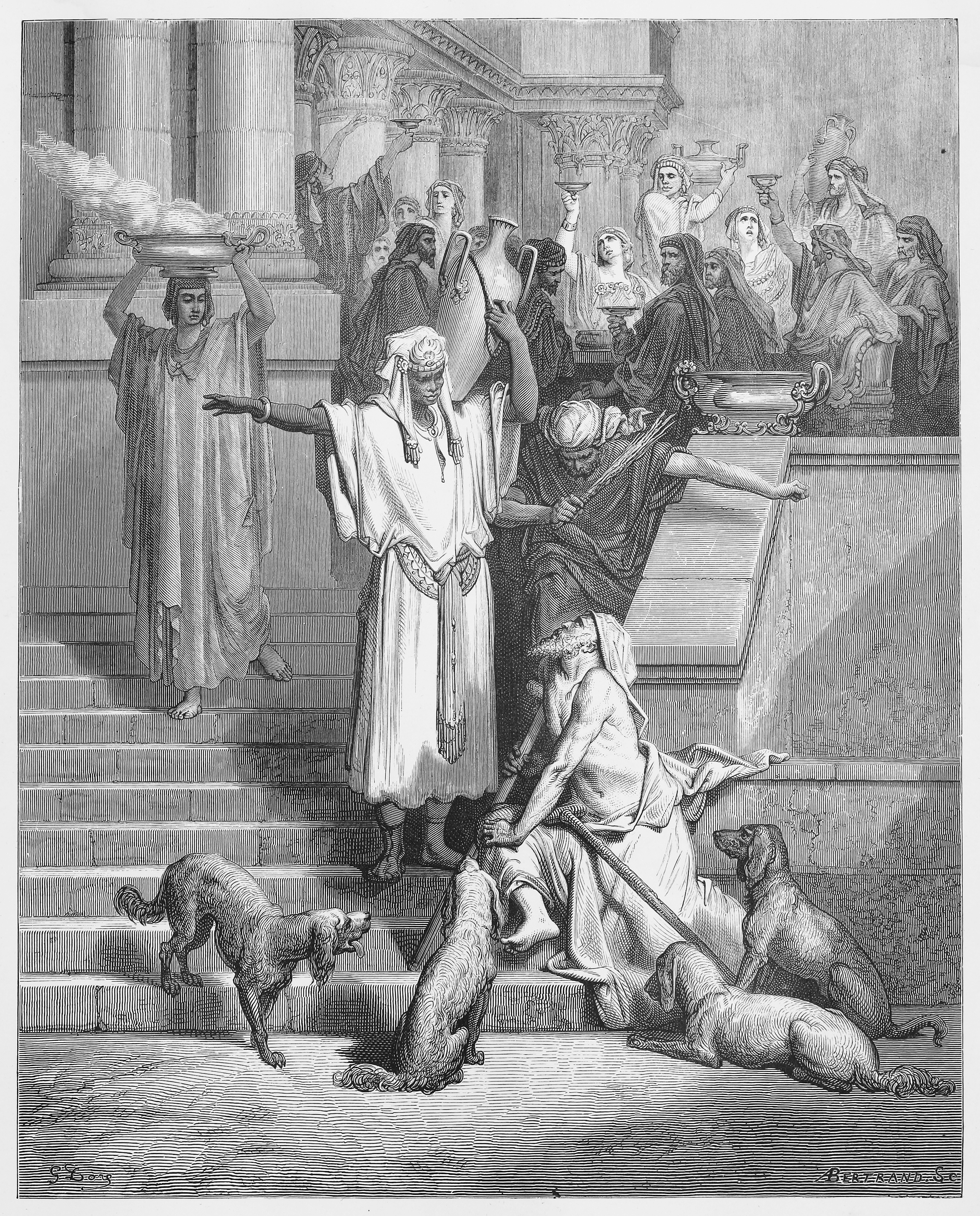The Bible contains numerous promises and teachings encouraging believers to show compassion to the poor. Key themes include God’s call to generosity, God’s blessing on those who help, and the powerful insight that assisting the poor is akin to assisting God Himself.
The cultivation of this sensitivity is more important than many Christians realize. In the story of the rich man and Lazarus (Luke 16:19-31), the wealthy protagonist was never faulted with the kind of vices we normally associate with condemnable behavior—drunkenness, dishonesty, theft, violence, profanity, obscenity, or lust. Jesus’ primary criticism was summed up by two simple descriptions: the rich man was “clothed in purple and fine linen and fared sumptuously every day.” That’s it! Expensive clothing and fine food.

Of course, the worst fault in his life was callous insensitivity to the needs of others. Every day, he walked past Lazarus, a destitute person covered with leprous sores. He never even tossed a piece of stale bread the beggar’s direction or dropped a coin at his feet.
Had the rich man only known his heartless behavior would one day be an object lesson on the outcome of a selfish, self-centered existence read by millions worldwide, he may have lived differently. How tragic it is that he missed the door to eternal fellowship with God because that “door” appeared unattractive, unimportant, unnecessary. We should prayerfully take his story to heart. Could we be guilty of doing the same thing?
“Religion that is pure and undefiled” should always involve generosity with no thought of a reward (your right hand not knowing what your left hand is doing). However, it is still encouraging to know what God promises to do for those who become emissaries of His compassion in this needy world (James 1:27).
Consider the following pledges inspired by the Holy Spirit and written by anointed scribes in the Kingdom of God:
Honoring God—“Whoever oppresses the poor shows contempt for their Maker, but whoever is kind to the needy honors God” (Proverbs 14:31).
Lending to God— “He who has pity on the poor lends to the Lord, and He will repay what he has given” (Proverbs 19:17).
Divine provision—“He who gives to the poor will not lack, but he who hides his eyes will have many a curse” (Proverbs 28:27).
Divine promotion, health, recognition, and the impartation of God’s glory—“Is not this the fast that I have chosen: to loose the bonds of wickedness, to undo the heavy burdens, and to let the oppressed go free, and break every yoke? Is it not to divide your bread with the hungry and bring the poor who are outcasts into your house? When you see the naked, to cover him and not hide yourself from your own flesh? Then your light shall break forth as the morning, and your healing shall spring forth quickly, and your righteousness shall go before you; the glory of the Lord shall be your reward” (Isaiah 58:6-8).
Divine deliverance, protection, blessing, and sustenance—“Blessed are those who consider the poor; the Lord will deliver them in the day of trouble. The Lord will preserve them and keep them alive, and they will be blessed on the earth, and You will not deliver them to the will of their enemies. The Lord will sustain them on the sickbed . . .” (Psalms 41:1-3).
Riches—“The generous soul will be made rich, and he who waters will be watered also himself” (Proverbs 11:25 MEV). “He who has a generous eye will be blessed, for he gives of his bread to the poor” (Proverbs 22:9 NKJV).
The God-sent “riches” that come from showing generosity to the poor are often not material in nature. Jesus talked about “true riches,” like being: rich in faith, rich in mercy, rich in God’s glory, and rich in the revelation of God’s Word (Luke 16:11, James 2:5, Ephesians 2:4, Romans 9:24, Colossians 3:16). These imparted “riches” also include that deep sense of satisfaction that always comes after sincerely helping a needy person and truly loving others as Jesus commanded. There is no more powerful and convicting passage than 1 John 3:16-18 in illustrating the nature of this spiritual path:
“By this we know the love of God: that He laid down His life for us, and we ought to lay down our lives for the brothers. Whoever has the world’s goods and sees his brother in need, but closes his heart of compassion from him, how can the love of God remain in him? My little children, let us love not in word and speech, but in action and truth.”

For those who manifest God’s love this way, the greatest of all return blessings was summed up by Jesus in one of His last messages: The Parable of the Sheep and the Goats.
The dominant difference between the two groups was this: the goats were selfish and insensitive to the needs of others, while the sheep were sympathetic and generous. In the parable’s conclusion, when rewarded, the righteous questioned the Son of Man (the Shepherd-King) when He returns in all His glory:
“‘Lord, when did we see You hungry and feed You, or thirsty and give You drink? When did we see You a stranger and take You in, or naked and clothe You? And when did we see You sick or in prison and come to You?’ The King will answer, ‘Truly I say to you, as you have done it for one of the least of these brothers of Mine, you have done it for Me’” (Matthew 25:37-40).
So, according to that passage, we can actually minister to God by ministering to the poor and needy! How powerful! Let’s build a worshipful shrine to such a profound truth in our heart of hearts and let it motivate us to be God’s hand extended to this hurting world all our days.

